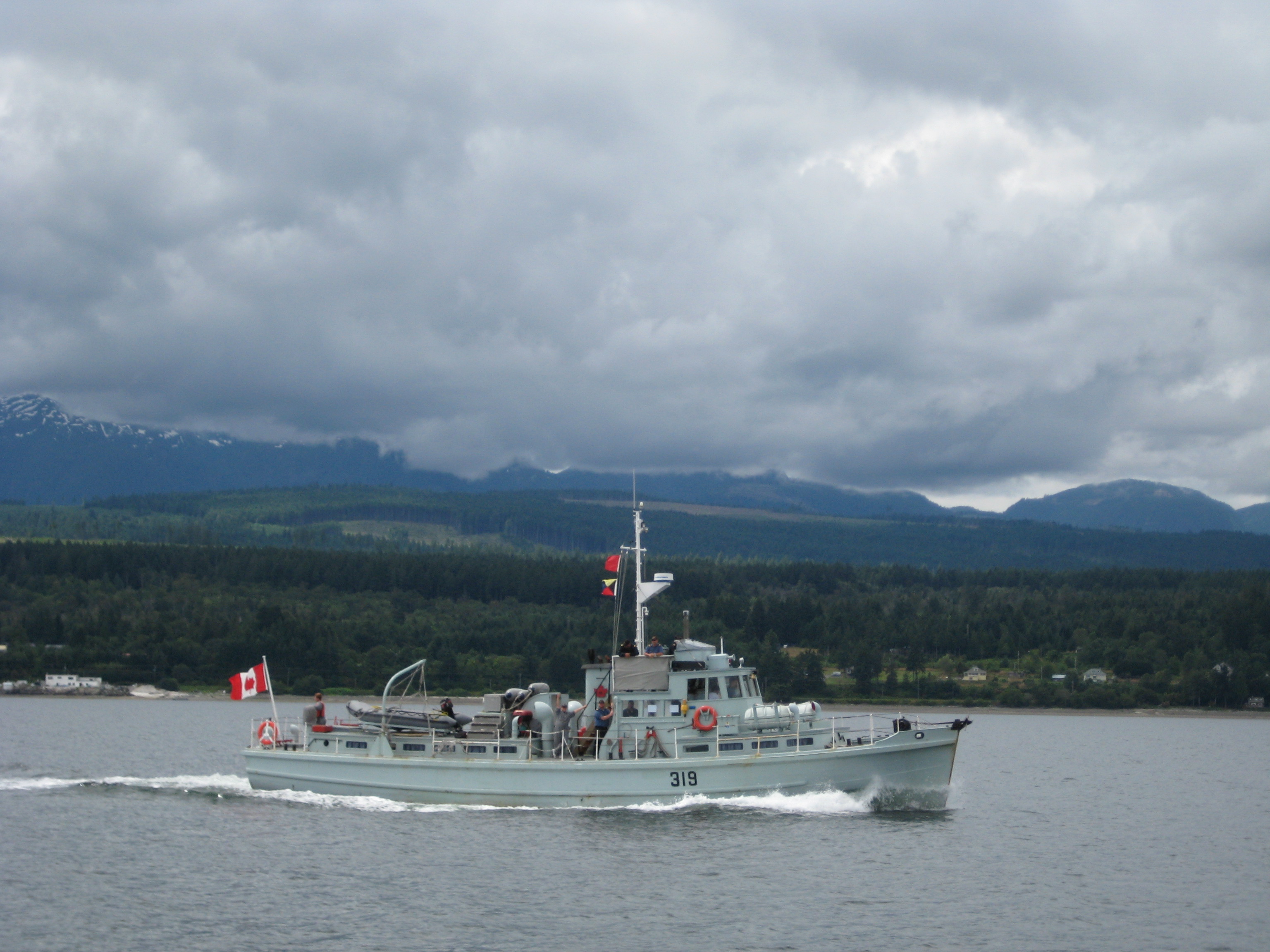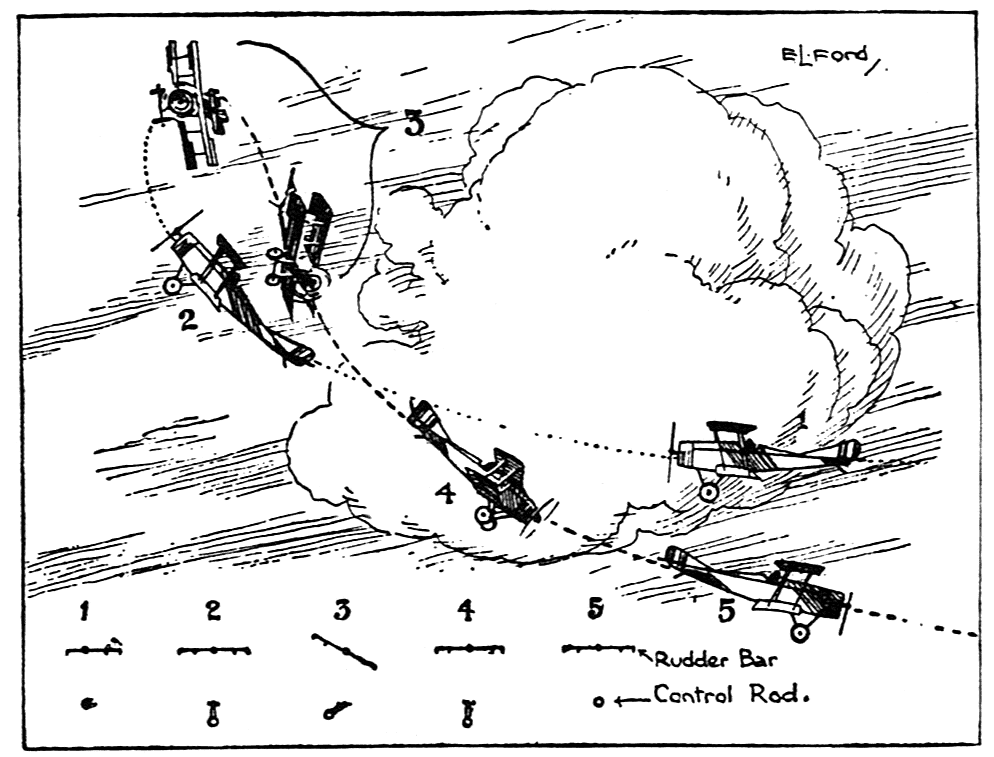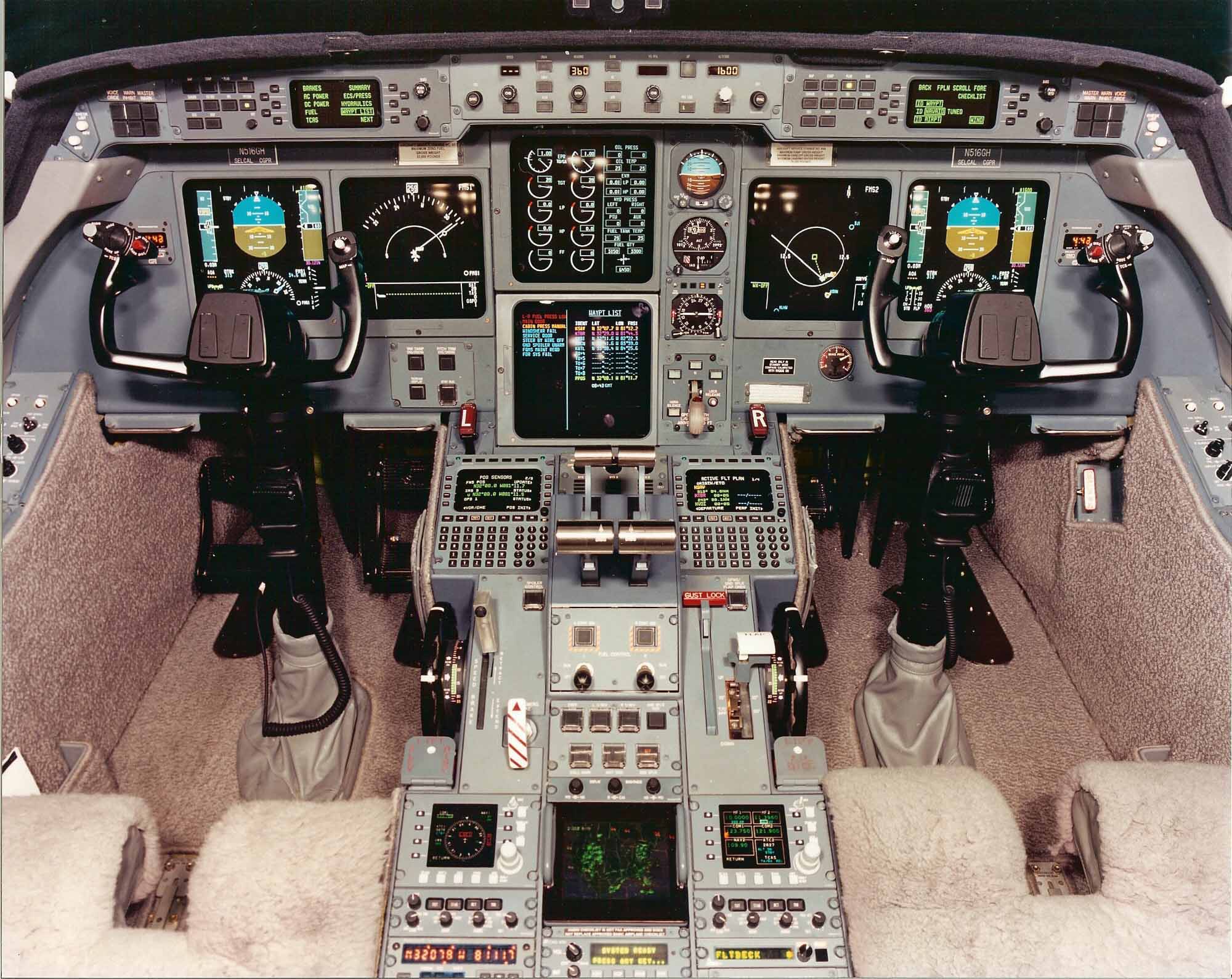Some Air Force and Navy pilot phrases make perfect sense, some are beyond explaining, some have history that explains them, and others exist because they are ironic. A few quick examples:
"Bingo." When you are bingo, you are at minimum fuel, the game is over. Obviously.
"Joker." Joker fuel means you have enough for another round of whatever it is you are doing. The term comes from the Air Force in World War II, but nobody seems to know why.
"Winchester." This means you are out of ammo but most modern pilots couldn't tell you why. This term dates back from the late 19th and early 20th centuries and the Winchester Repeating Arms Company. Their early rifles required manual loading after each shot. When a shooter yelled “Winchester” during combat or a shooting competition, it signified they had emptied their gun and needed to reload.
"Bravo Zulu." In the Air Force, if something is exceptionally well done it is called "Sierra Hotel." That means your excrement is especially warm. Why that is good, I'm not sure, but the translation is easy. The Navy equivalent is "Bravo Zulu." I first heard it while flying a Navy Admiral who seemed overly impressed by a lucky landing of mine. I asked him what it means and he said he didn't know. Over the years I've asked several naval aviators who didn't know. I finally asked a surface guy and found out. It comes from a 1949 NATO signal code book used by Allied navies. Any short code started with Bravo and was followed by a second letter. The last letter, Zulu, translated to "well done." The Canadian ship in the photo is displaying the semaphore flags Bravo and Zulu.
"NORDO." If you've lost your radio, you have no radio. You are NORDO.
"CLUEDO." If someone who is NORDO is "radio-less," someone who is CLUEDO is, well, clueless. It is, of course, an insult. And that is why we are here.

Updated:
2024-07-29
I never heard CLUEDO until after I retired from the Air Force. I'm not sure I would have used it had I known about it. Openly insulting someone may seem counterproductive if the aim is to correct a deficiency. But in many military units, dealing with limited time and young pilots with more aggressiveness than sense, a slap on the face is sometimes called for. The three most common instruction techniques when I started flying were fear, sarcasm, and ridicule.
Those days, of course, are long gone. But the CLUEDO term persists because it is shorthand for saying, "You need to work harder, Skippy. Get a clue because you don't have one at present."
Here are a few CLUEDO stories from my past, each with a few techniques attached. While there are many examples of CLUEDO to pick from, I'll narrow my focus to flying procedures, politics, and Crew Resource Management.
— James Albright

1
Flying procedure CLUEDO
The "Reverse Immelmann"
Side note: If you want to learn more about G-tolerance and how to improve it, allow me to humbly recommend my book: Fly By Wired.
The other guy's CLUEDO
I was an Air Force Undergraduate Pilot Training (UPT) student in 1979 at the ripe old age of 22 and no real flying experience. After a month of flying in the Cessna T-37, most of us were turned loose solo to practice aerobatics. We were assigned a chunk of airspace and borders defined by TACAN radials and a VFR chart. There is a progression that was expected of us: aggressiveness, near death, caution, aggressiveness. When you came back from your near death experience the code was "border patrol." For me, I told a few of my classmates: "There I was, flying one loop after another, seeing how much tunnel vision I could get from the G's without passing out. Then I found myself coming to, staring at nothing but dirt flying at the speed of heat. I recovered and spent the rest of my time doing border patrol." And that is what happened. I spent 15 minutes or so flying straight and level, only turning to keep within the borders. The worst insult we had for others was to say, "What are you, a future airline pilot?" I fessed up my sins and was taught a few G tolerance maneuvers early in the program. I got a clue.
One of my UPT classmates never did get the clue. Most pilots could sustain more positive G's than the mighty T-37 and since a loop or Immelmann turn only took 3 or 4 G's, having a G-induced loss of consciousness like mine was rare. Pulling positive G's isn't too terribly uncomfortable and you do get used to it. There comes a point where the blood pooling in your lower body robs your brain and eyes of blood. Your vision narrows and if you add to those G's slowly, you can track your progress with your vision. You go from tunnel vision to graying out and then blacking out. Negative G's are another story. Now you have too much blood in your eyes and brain. Instead of blacking out you "red out." We used to joke about doing a "reverse Immelmann," by inverting the aircraft and pushing the stick forward. Theoretically it could be done with negative 3 or 4 G's. Of course it was a joke. But one of my classmates tried it. He survived but ended up in the hospital for a month and wasn't allowed to complete the program. No wings and no clue.
My CLUEDO
While my classmate was getting himself medically grounded, I was busy establishing a reputation as an engineer pilot, which I thought at the time was a compliment. In the entire year at UPT, I never missed a single question on a written test and was awarded the "Academic Ace" trophy. Flyingwise, I did well but certainly wasn't an ace of any kind. I wasn't sure what separated me from those in the ace category, but I did not volunteer to fly fighters and I suppose that says something about me. It wasn't until graduation night that I realized that I did indeed have a flying deficiency I needed to address.
Our class started with 77 students and by the time we graduated we were down to 44. The night before graduation we were given a party by the instructors and it was our T-38 Flight Commander's responsibility to say something nice and funny about each of us. He was a major, the senior instructor, and spent most of his time flying with problem students. I never flew with him until after I passed my final checkride and I think we flew because he was supposed to fly with every student. What he said about me to the class, behind the podium but without notes, haunted me for a while. He said, "Lieutenant Albright has the brains of an engineer and the hands of one too. If a loop calls for five and a half G's, that is what he does, instantly. One moment you are at 1 G and the next the meter is on 5.5. Not 5.4, not 5.6, but 5.5" The instructors and my classmates howled with laughter. I was confused.
I went on to fly the T-37B and KC-135A and while trying to max-perform the T-37 one day, I got the clue I needed. Flying airplanes isn't about nailing the numbers, though that is important. Flying airplanes requires you to have a feel for the flight controls and knowing what is needed to achieve the desired result. The danger of immediately going from 1 G to 5.5 Gs on the front half of a loop is that the instantaneous G's robs the aircraft of more energy than a gradual application. If you don't have enough energy at the top, you will "fall out" of the loop. But if you are too gradual with the G's, it takes you longer to get to the top and you will have the same problem. You have to have the finesse to get it just right.
Instructor CLUEDO
As instructors, we have to somehow see into our students to fix what is broken, to provide the needed clues. I think had any of my instructors objected to the instantaneous G's — me "snatching" the stick — I would have gotten the clue. Of course the fault is mine, but an empathetic instructor could have sped my progress to having the clues I needed.
2
Political CLUEDO
The battle for promotion
Side note: The hilarious tale of Major Stephen Jenkins appears in my book, Flight Lessons 3: Experience.
The other guy's CLUEDO
The battle of officer promotion in the military depends mostly on the retention rate of the officer force for the rank the officer is competing for. If lots of lieutenant colonels are getting out, for example, the promotion rate of majors to lieutenant colonel becomes easier. For my year group, nobody was getting out, the airlines were not hiring, and the total number of officers was declining because of White House cutbacks of the military. I was at Andrews Air Force Base and of eleven pilots "in the zone" for lieutenant colonel at the 89th Airlift Wing, only three would be promoted. After ten years of saying that a master's degree didn't matter and it was more important to be the best professional pilot you can be, for our year group having a high quality master's degree became important again. I had my degree and all the necessary pilot ratings, so I thought my chances were pretty good. When I arrived at the wing, one of the pilots greeted me with, "So, you are my competition." I never paid much attention to Major Stephen Jenkins until the day he showed me an email from a maintenance officer which said a few disparaging things about the wing commander, the person with the greatest impact on our promotions. "He better hope the wing king never sees this," I said. "He has," Jenkins said, "I forwarded it to him."
Jenkins, to say the least, was out for blood when it came to getting promoted. The promotion board results reached the wing commander before they were made public and word leaked out that two pilots in the wing were promoted, and a non-pilot made it as well. "You and I were the only pilots to make it," Jenkins crowed to me the next time I saw him. "How can you be sure?" I asked. "We are the only pilots in the wing with the records to get promoted." I let his prediction go without comment. "Wanna see something neat?" he asked. He pointed out the window to the parking lot. "See that red Corvette? I just bought it as a promotion present to myself." I agreed it was a nice looking car and went on with the rest of my day. That Friday the board results were announced. Two pilots in the wing had been promoted: me and the head of our weather office. The weather officer had been a pilot but was medically grounded. He still wore pilot wings and would soon become a lieutenant colonel. Jenkins? No. Either you get promoted or they toss you. Jenkins spent more time worrying about how to tear down the competition than about getting a master's degree or whatever else the Air Force adult leadership deemed critical for our year group. Jenkins was forced to leave the Air Force, still without a clue.
My CLUEDO
Our year group of majors was in the worst position in recent Air Force history. We started just as Vietnam was coming to a close and were sized for war but were suddenly in peacetime. Our promotion rates every step of the way were low. After President Clinton came to office, the number of aircraft were cut and the number of pilots cut accordingly. Jenkins had a high profile job in the wing, essentially he was the chief scheduler. He spent a lot of time pontificating from his throne about how certain his promotion to lieutenant colonel was. After our promotion board the Air Force instituted the "Feet on the ramp" program which immediately grounded any pilot who had been passed over for promotion. The 89th was given the additional directive to further ground a larger number of majors and lieutenant colonels. Jenkins was grounded and asked to find a non-flying job, pretty much guaranteeing him a second and final pass over which would toss him out of the Air Force without a pension. The wing commander found out I had degrees in engineering and economics and tasked me with rank ordering the entire wing pilot population. "Orders are orders," I figured. If anyone asked me what I was doing, I would tell them. I gained access to all pilot records, did the rack and stack, and more pilots were grounded. Those pilots, and others who felt threatened, would for years say I was the one doing the grounding. I am sure they feel I should have refused the duty. After the fact, I realized that I could have followed orders but kept quiet about it.
Giving yourself a clue
Jenkins was deaf to the warning signs: not all of his peers bought into the idea that a master's degree wasn't important and that pilot records alone determined promotion. I never brought it up, but I heard others ask him how he would distinguish himself against other officers who had equal pilot credentials. Had he sized up the political situation a few years earlier, he could have gotten a rushed degree and that might have saved him.
I attacked the pilot manning problem, per orders, with full enthusiasm. I agreed with the Air Force that the 89th was rank heavy and that had to change. When confronted, I would say just that. My peers were stunned but I was deaf to their complaints. While not doing the job was not an option for me, I could have done the job while sympathizing with my peers. "I know exactly where you are coming from and I wish there was another way. I'll do my best to telegraph these issues to the wing commander."
In both cases, Jenkins' and mine, the answer was to listen to others sympathetically and consider their point of view. In Jenkins' situation, he could have realized he had more work to do. In my situation, I should have realized I could do the job without appearing so openly (and coldly) methodical.
3
Crew Resource Management CLUEDO
Dealing with the crew
Side note: Adrian Metzger's transition from a 35-year airline captain to corporate pilot appears in my book, Flight Lessons 5: People.
The other guy's CLUEDO
In 2006 I went to Gulfstream GV initial training after flying various Gulfstreams for about 15 years. The GV was the queen of the business jet world at the time and the course was considered moderately difficult. Though failing the course wasn't unheard of, it was rare. I was paired with a pilot who had just retired from the airlines, let's call him Adrian Metzger. Metzger was fond of telling me that he had been a captain for 35 years, not realizing that would be a red flag for most business jet pilots. His first day in the simulator went well, but we didn't have any malfunctions or abnormal procedures to contend with. Sim Two, however, didn't go well at all.
I was in the left seat, one of the engine fire lights lit up at V1, and I heard long string of expletives from the right seat. Adrian was contending with a pop up checklist he had never seen before. Despite the lack of callouts, I rotated the aircraft and asked for the gear. Adrian continued to fight with the popup checklist. "Adrian," I said, "I need you to raise the gear." "Oh," he said, finally raising the gear. He immediately put his hand on a throttle. "You want me to shut it down?" "No, that can wait." "But it's on fire." "It isn't going to do us any good if you pull back the wrong throttle." Adrian pulled back the wrong throttle and in a second we were inverted and a few seconds later we were both in simulator hell.
The instructor started to talk to Adrian about Crew Resource Management but Adrian stopped him. "At my airline all my first officers told me I was number one in CRM, the best. I know all about CRM."
Adrian managed to get his type rating and I forgot about him until one of the pilots from his former airline asked me if I knew him. I told him that I did. He told me the first officers at the airline called Adrian, "Little Hitler." He left the airline with no CRM skills and without a clue. I've heard that after a year as a GV pilot he got much better. CLUEDO, it turns out, can be cured.
My CLUEDO
After GV initial I joined a three-pilot flight department that could have been used as a case study of how not to do CRM. The boss instructed with sarcasm. The second pilot refused to ask questions and spent most of his time sulking. I just tried to get along. Two years later the boss was gone and I took his place. I discovered why the second pilot refused to ask questions: the boss would bite his head off with, "I can't believe you didn't know that." We hired a new third pilot and things got better.
Giving the other guy a clue
As it turned out, all three of us were CLUEDO. The boss didn't realize he was shutting down communications with his sarcasm. The second pilot didn't realize that he could have made things better by simply making his feelings known. (I think the boss would have listened.) I could have fixed the problem right off the bat had I bothered to analyze what was motivating them both and then acted as a marriage counselor. It might have worked.
4
Curing CLUEDO
(When possible)
Every CLUEDO situation is unique and there is no grand solution to fix them all. In fact, I think some cases have no cure. I heard others argue with Jenkins about the certainty of his promotion, but his mind was made up. But in most cases, you can fix the person with CLUEDO, even if that person is you.
Knowledge. Why can a pilot survive positive G's better than negative? Why is it important to gradually feed in the back pressure on the front side of a loop? Our instructors could have done a better job explaining both issues but I think they assumed the answers were obvious and were unaware of how many of us were CLUEDO. When dealing with a complicated issue, never assume knowledge as a given.
Communication. Why is going beyond the stated requirements for promotion more important when the number of promotions has decreased? Why is expressing a sympathetic view to potential victims of a bureaucracy so important, even when you don't consider yourself the victimizer? When someone is CLUEDO, those with the clues need to go the extra distance to cure the CLUEDO.
Empathy. Why do some people ignore the obvious? It makes perfect sense to slow things down when you can when an engine fails. It seem obvious that when dropped into a feud between personalities the right thing to do is to defuse and talk. For most cases of CLUEDO, you need to put yourself in the other person's shoes to really understand what is going on.



